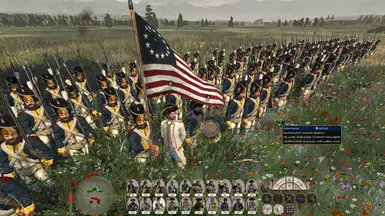
Nash again influenced the scholarship by suggesting that class, like region, impacted the experience of African Americans during the war. Nash, most especially, constituted part of a body of scholarship focusing on region-specific studies of free African Americans in rural areas. Discussing the revolutionary experience also shifted the focus from the enslaved to free blacks. In the 1980s Jacqueline Jones, Mary Beth Norton, and Sylvia Frey challenged this male-focused interpretation of the American Revolution. Much of this scholarship has centered on African American men and their complex relationship with the goals of the Revolutionary War. When African Americans were discussed, the focus was on those free and enslaved African Americans who fled with the British after the war. Classic historical works on the subject questioned the existence of slavery within the context of the War of Independence.


This article therefore provides references to classic texts as well as newer monographs on the subject of blacks during the Revolutionary War period. Despite the prolific growth in the field of African American studies, scholarship on African Americans and the American Revolution remains woefully thin.


 0 kommentar(er)
0 kommentar(er)
